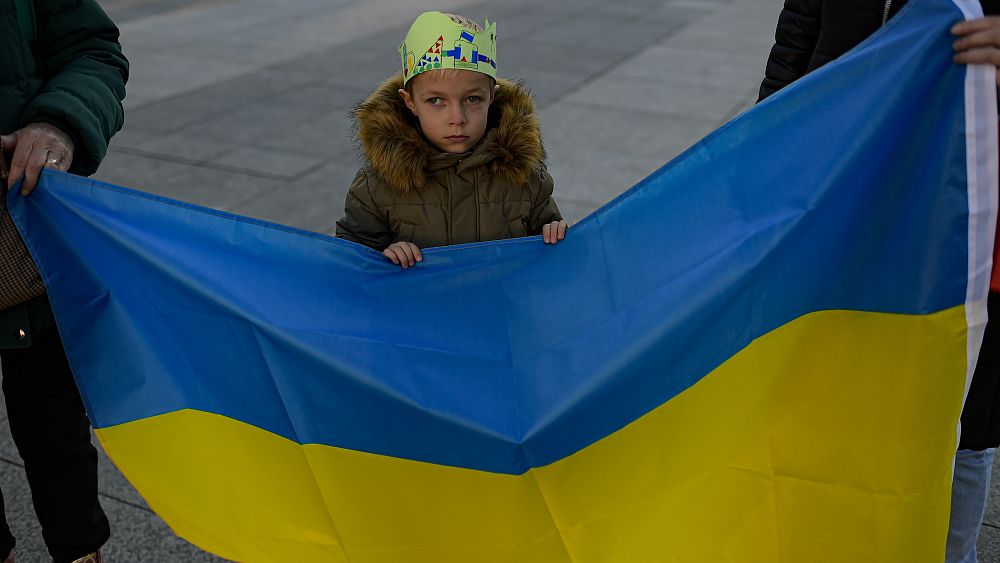A huge number of the 160,000 Ukrainian refugees who have been granted temporary protection in Spain following Russia’s invasion last February are still struggling to find work and regular housing, with around 20,000 living in flats and reception centers.
Inna came to Spain from Ukraine with her daughter in order to flee the war. After spending some months in a reception center, she now lives with a Spanish host family.
Like the rest of their fellow nationals, they are deeply grateful for the help they received from the Spanish government, NGOs, and Spanish society as a whole.
But one year after Russia launched its full-scale invasion of Ukraine, many refugees are still struggling to settle in Spain.
“You won’t find a job without knowing the language. That’s why I am learning Spanish. And then there’s the problem of validating your diploma,” Inna Usenko told Euronews.
Only 14,000 refugees – about 15% – have found a job in Spain compared to an average of 40% in Europe, according to the Organisation for Economic Co-operation and Development (OECD).
Many of them, like Kseniia Solntseva, a refugee from Dnipro, are having to rely on savings or selfless families and NGOs to survive. “Only my parents from Ukraine send me money,” she revealed.
“There are many displaced Ukrainians who don’t have homes, who are living with their relatives or friends who live in Spain,” explained Yuriy Chopyk, a representative for Ukrainian refugees in Spain.
Indeed, thousands have been forced to return to Ukraine or move to other countries which offer more job opportunities and direct financial aid both for refugees and host families. Increasing numbers of Ukrainian families are deciding to make their way back. But what they are returning to remains
“I think that around half of those who came are actually staying (in Spain),” Oksana Demyanovych of the Ukrainian cultural association told Euronews. “But of course, there might be new arrivals.”
Frustration at subsidy delays
Ukrainian and Spanish associations have demanded financial help for those displaced by the war. The Spanish Government has promised a monthly €400 subsidy for them, which is only now starting to arrive.
“We cannot understand how it is possible that financial aid that was already approved so long ago has not yet reached the beneficiaries… a year on [from Russia’s invasion],” said Conrado Giménez, President of the Madrina Foundation children’s charity.
Because as the Kremlin intensifies its offensive on Ukraine, Europe will once again have to prepare for another possible Ukrainian exodus with tens of thousands of displaced people.
(Except for the headline, this story has not been edited by PostX News and is published from a syndicated feed.)

